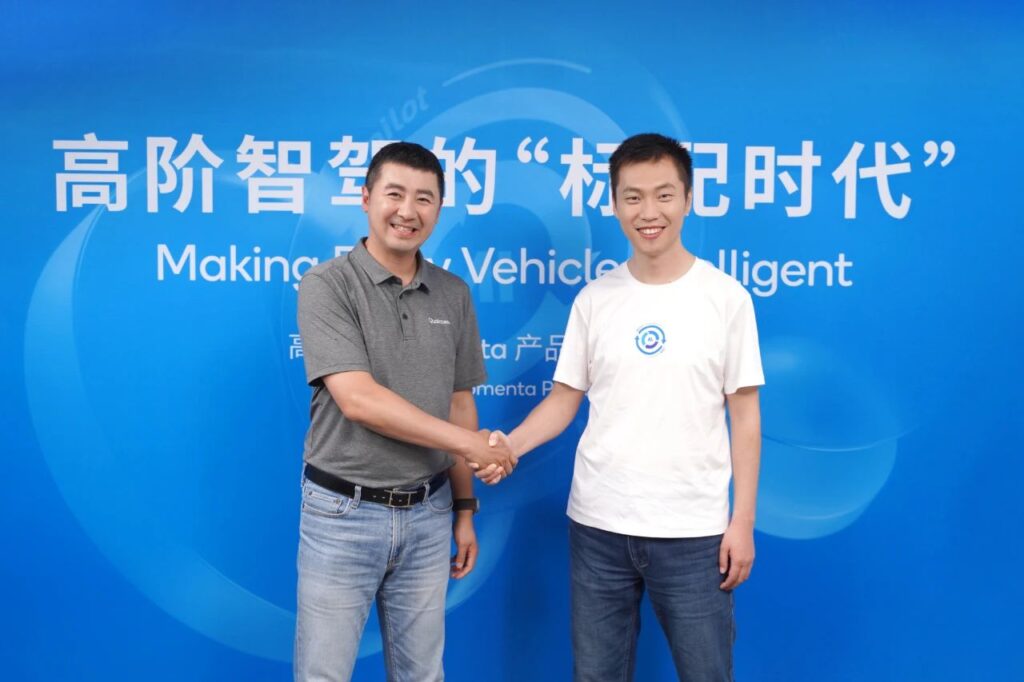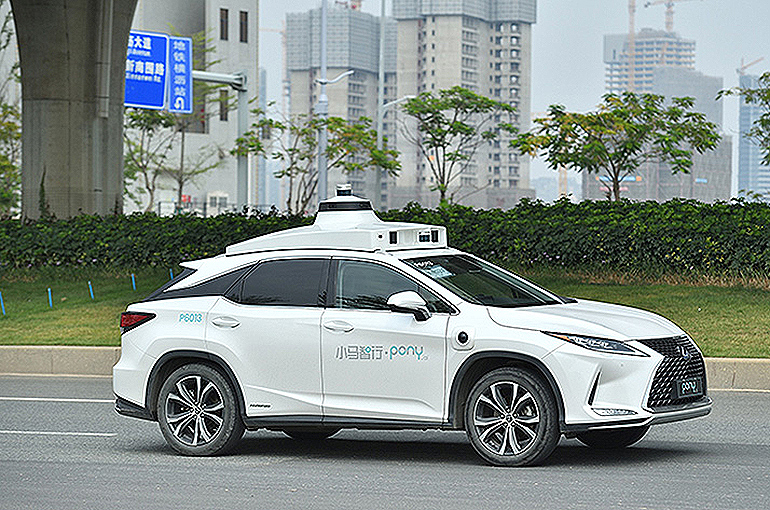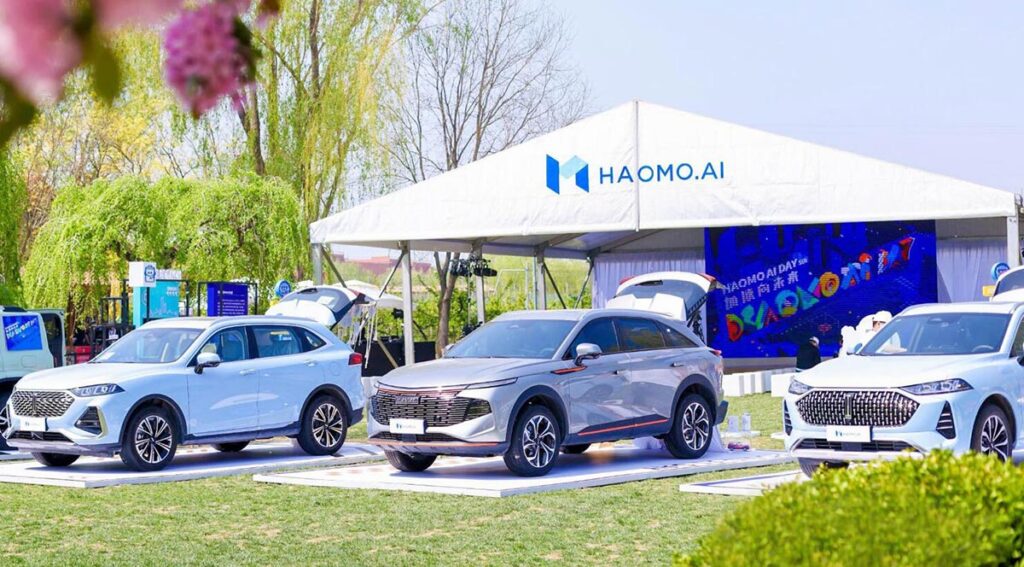
Vueron Newsletter
No. 110
2024.04.26
| Momenta, Qualcomm launch new intelligent driving solutions | ||
| Chinese Self-Driving Startup Pony.ai to File for US IPO | ||
| Luminar Begins Production for Volvo and Unveils Next-Generation Halo Lidar | ||
| Hesai unveils compact long-range lidar for vehicles |
1. MAN: First autonomous truck to operate on German motorway
- Momenta and Qualcomm collaborate to launch scalable intelligent driving solutions for ADAS and autonomous driving.
- Utilizes Momenta’s “One flywheel” core technology-driven algorithm architecture and Snapdragon Ride platform.
- Supports various driving scenarios like highway navigation pilot to urban navigation pilot.
- Delivers powerful computing performance ranging from 36TOPS to 100TOPS.
- Supports ADAS and autonomous driving across a wide range of vehicle models.
- One of the world’s first intelligent driving products built on the Snapdragon Ride platform.
- Expected to be deployed in production models later this year.
- Aims to reduce hardware system BOM costs for automakers and accelerate the integration of intelligent driving technology.
- Future collaboration aims to develop more solutions integrating cabin-driving fusion functionalities.

The focus on reducing hardware system costs indicates a commitment to making intelligent driving technology more accessible and cost-effective for automakers, potentially driving wider adoption across the industry.
2. Chinese Self-Driving Startup Pony.ai to File for US IPO
- Chinese autonomous driving startup Pony.ai plans to file for an IPO in the United States, as confirmed by China’s securities watchdog.
- The company aims to go public on either the New York Stock Exchange or Nasdaq, intending to issue up to 98.2 million ordinary shares.
- According to the China Securities Regulatory Commission (CSRC), Pony.ai must update its filing within 15 working days and report any potential issues related to the share issuance.
- Founded in 2016 by Lou Tiancheng and James Peng, Pony.ai focuses on autonomous ride-hailing, autonomous truck, and smart driving businesses, with research centers in various locations including Silicon Valley.
- The company has deployed self-driving vehicle fleets in major Chinese cities, accumulating over 28 million kilometers of self-driving road tests by December.
- In October, Pony.ai secured USD 100 million in a Series D+ financing round from Saudi Arabia’s Neom and its investment fund, valuing the firm at USD 8.5 billion in March 2022.

Pony.ai’s decision to file for an IPO in the United States indicates its ambition to access global capital markets and potentially expand its business beyond China. Pony.ai’s substantial road test mileage and strategic partnerships, such as the financing from Neom, demonstrate its progress and attractiveness to investors in the autonomous driving sector.
3. Great Wall-backed autonomous driving startup Haomo secures RMB 300 million in new funding
- Haomo.AI Technology, a Chinese autonomous driving startup backed by Great Wall Motor, has secured RMB 300 million ($41 million) in a Series B2 funding round.
- The funding comes from a new fund set up by existing investor JZ Capital and the Changxing government in Huzhou, Zhejiang province.
- Haomo plans to use the funding for research and development to maintain its leading position in mass-produced autonomous driving solutions in China.
- The startup aims to leverage cost-effective advanced driver assistance systems to compete in the highly competitive market beyond 2024.
- Haomo will invest in large models, computing power, big data research, and develop cognitive products in-house to strengthen its technological foundation.
- Formerly a division of Great Wall Motor, Haomo became an independent company in November 2019, with its core team partly from Great Wall Motor’s smart driving R&D team and tech companies like Baidu and Huawei.
- In 2023, Haomo unveiled three ADAS kits targeting different vehicle segments, priced between RMB 3,000 and RMB 8,900.
- Over 20 vehicle models have been equipped with Haomo’s HPilot ADAS, driving nearly 140 million kilometers in China.
- Haomo predicts that the ADAS penetration rate for passenger cars in China will reach 70 percent by 2025.
- This funding round follows another round just two months ago when Haomo raised over RMB 100 million in a Series B1 round.
- Large funding rounds in China’s autonomous driving sector have been scarce due to macro-economic challenges, with HoloMatic’s RMB 300 million Series C3 funding round in July 2023 being one of the few notable exceptions.

Haomo.AI Technology’s ability to secure consecutive funding rounds reflects investor confidence in its autonomous driving solutions and potential for growth. The company’s focus on cost-effective ADAS systems highlights the importance of affordability in capturing market share, especially in a competitive environment.
4. Luminar Begins Production for Volvo and Unveils Next-Generation Halo Lidar
- Luminar Technologies announces updates and partnerships ahead of its 2024 investor day.
- Begins volume production of Luminar Iris lidar sensor for Volvo, marking a significant revenue milestone.
- Mercedes-Benz plans to incorporate updated Iris sensor into next-gen electric vehicles launching in 2025.
- Luminar focuses on the Chinese market, facing competition from local suppliers like Hesai and Robosense.
- Introduces next-gen sensor, Halo, aiming for superior performance, reduced size, and lower cost.
- Long-term goal is to make lidar technology more accessible and enhance vehicle safety features.
- Conducts testing with reinsurer Swiss Re to quantify benefits of adding lidar to vehicles, showing significant decrease in collisions and impact force.
- Partners with Applied Intuition to develop simulation capabilities for testing assisted and automated driving systems in various scenarios.
- Expands manufacturing partnership with TPK to enhance manufacturing capabilities and supply chains, aiming to reduce costs.

The successful volume production of the Iris lidar sensor for Volvo and the partnership with Mercedes-Benz indicate Luminar’s progress towards generating significant revenues and expanding its customer base. Luminar’s collaboration with Swiss Re and Applied Intuition demonstrates its efforts to validate and improve the safety benefits of lidar technology through testing and simulation.
5. Hesai unveils compact long-range lidar for vehicles
- Hesai Technology unveils the ATX lidar, designed for the automotive industry and ADAS-equipped vehicles.
- Built on the 4th-generation technology platform, it offers longer detection range, higher resolution, and an ultra-wide field of view.
- CEO David Li anticipates the ATX to standardize safety features in intelligent vehicles, highlighting its impact on the lidar market.
- The ATX is 60% smaller and nearly half the weight of its predecessor, with low power consumption, enabling versatile integration on vehicles.
- Features include a maximum detection range of 300 meters, 140° horizontal FOV, real-time environmental condition identification, and noise filtering.
- Hesai aims for large-scale mass production of the ATX in Q1 2025, with design wins and nominations from leading automotive OEMs.

The smaller size, improved performance, and energy efficiency of the ATX highlight its potential to enhance safety and intelligence in vehicles, aligning with industry trends towards autonomous driving and ADAS. The launch of the ATX represents a critical moment for Hesai, as it aims to capitalize on its technological advancements and market opportunities while navigating challenges in investor sentiment and market performance.
*Contents above are the opinion of ChatGPT, not an individual nor company

